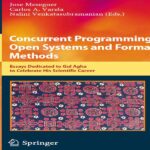- عنوان کتاب: Critical Thinking
- نویسنده: Damiano Canale
- حوزه: تفکر
- سال انتشار: 2021
- تعداد صفحه: 267
- زبان اصلی: انگلیسی
- نوع فایل: pdf
- حجم فایل: 7.77 مگابایت
آنچه در دستان خود دارید، مقدمه ای بر تفکر انتقادی است. این رشته به دو حوزه مرتبط مربوط میشود: اول، مجموعه مهارتها و شایستگیهایی که به شما در تشخیص، ارزیابی و ارائه استدلالهای خوب کمک میکند. دوم، مجموعه فعالیت ها و ابزارهایی که می توانیم به ترتیب برای آموزش این مهارت ها از آنها استفاده کنیم. با این وجود، چرا موضوع «تفکر انتقادی» نامیده می شود؟ در یونان باستان، اصطلاح “kriticos” به معنای توانایی قضاوت و تشخیص چیزها، به منظور انجام بهترین انتخاب برای خود و دیگران بود. این روزها به نظر می رسد که این توانایی برای بقا در تلاش است. در دنیای ارتباطات بیش از حد، که در انحصار رسانههای اجتماعی است، این اتفاق میافتد که توانایی ما برای قضاوت در مورد نظرات دیگران، تفکیک درست و نادرست، تشخیص دلایل خوب از دلایل بد در حمایت از یک انتخاب، تقریباً ضعیف شده است. نقطه ناپدید شدن همه ما می دانیم چرا. حجم انبوهی از اطلاعاتی که هر روز به ما سرازیر می شود تشخیص اینکه چه چیزی قابل اعتماد و مرتبط است از چه چیزی که نیست بسیار دشوار است. این پدیده فقط با تکثیر اخبار جعلی بدتر می شود، یعنی با انتشار عمدی اطلاعات نادرست که از تعصبات گسترده به اضافه ترس های ما استفاده می کند و در نتیجه می تواند توجه عموم را به خود جلب کند. علاوه بر این، امروزه هرگونه تبادل نظر، چه در شبکه های اجتماعی و چه در بحث عمومی، به یک مبارزه بی امان تبدیل می شود که در آن توهین، تحقیر حریف یا تمسخر عقاید دیگران، غالباً باعث می شود. محل بحث انتقادی دلایل حمایت از یک ادعای معین. همه اینها نه تنها کیفیت بحثهای عمومی و انتخابهای جمعی را کاهش میدهد، بلکه توانایی ما را برای بیان یک قضاوت سنجیده در مورد موضوعاتی که اغلب بسیار مرتبط با زندگی ما هستند، کاهش میدهد. بنابراین تصادفی نیست که امروزه برنامه های فارغ التحصیلی بسیاری از مهم ترین دانشگاه های جهان شامل یک دوره تفکر انتقادی است: هدف آن تقویت توانایی دانشجویان برای توجیه کافی ادعا، رد ادعاهای دیگران، شناسایی اشتباهات است. در استدلال، و ارزیابی دلایل در حمایت از یک ادعای خاص. این هم برای گفتمان روزمره و هم برای تحقیق علمی صدق می کند. با این حال، هدف مورد بحث تنها با اتخاذ رویکردی میان رشته ای قابل دستیابی است. طیف وسیعی از رشتهها وجود دارد که میتوان در این زمینه از آنها استفاده کرد: منطق، نظریه احتمال، آمار، نظریه تصمیمگیری، و دوباره نظریه استدلال و نظریه بحث عقلانی، و همچنین رشتههایی که ابتدا زبان را مطالعه میکنند. عمل شناسی کمک مهمی به آگاهی کامل از مشکلات و مهارتهایی که در تفکر انتقادی مطرح میشوند نیز توسط روانشناسی شناختی، و بهویژه روانشناسی استدلال و روانشناسی تصمیمگیری ارائه میشود. توانایی تولید و ارزیابی استدلالها، در واقع، نه تنها به قوانین حاکم بر بحث عقلانی، بلکه به توانایی ما برای محافظت در برابر سوگیریهای شناختی بستگی دارد که به طور سیستماتیک ما را به اشتباه در انتخاب یا ارائه راهحل برای یک مشکل سوق میدهند. . به طور کلی، توانایی مورد بحث به توانایی ما در اجتناب از مغالطات بستگی دارد، یعنی الگوهای استدلالی که کار نمی کنند، و با این حال به دلایلی تمایل داریم از آنها پیروی کنیم. این اشتباهات به دلیل نحوه ایجاد عوامل شناختی واقعی – به خاطر مشکلات ما در استفاده از برخی الگوهای استدلالی است. یا به این واقعیت که خستگی شناختی که در پیروی از روشهای استدلال صحیح تجربه میکنیم، ما را به سمت «میانبرهایی» سوق میدهد که میتوانند ما را به نتیجهگیریهای اشتباه سوق دهند.
What you are holding in your hands is an introduction to Critical Thinking. This discipline regards two related areas: first, the set of skills and competences that help you recognize, evaluate and produce good arguments; second, the set of activities and tools that we can call on and use to train these skills, respectively. This being so, why is the subject called “Critical Thinking”? In ancient Greece, the term “kriticos” meant the ability to judge and discern things, in order to make the best choices for ourselves and others. These days, this ability appears to be struggling to survive. In the world of hyper-communication, monopolized by social media, it happens that our ability to judge the opinions of others, to tell truth and falsity apart, to distinguish good reasons from bad reasons in support of a choice, has been weakened almost to the point of disappearing. We all know why. The inflated amount of information showering us every day makes it very hard to tell what is reliable and relevant from what is not. This phenomenon is just made worse by the proliferation of fake news, that is to say by the deliberate dissemination of false information that leverages widespread prejudices plus our fears, thus managing to attract the attention of the public. In addition, today any exchange of views, both on the social media and in public discussion, tends to turn into a relentless struggle, in which the insult, the denigration of the opponent, or the ridiculing of the opinion of others, often takes the place of critical discussion of the reasons supporting a given claim. All this drastically reduces not only the quality of public debate and collective choices, but also our ability to express a well-considered judgment on issues that are often very relevant to our lives. It is therefore no coincidence that today the graduation programs of many of the most important universities in the world include a Critical Thinking course: it aims at sharpening the students’ ability to adequately justify a claim, to refute the claims of others, to identify mistakes in reasoning, and to evaluate the reasons in support of a certain assertion. This applies both to everyday discourse and scientific inquiry. The goal in question can only be achieved, however, by adopting an interdisciplinary approach. There is a vast spectrum of disciplines from which one can draw in this respect: logic, probability theory, statistics, decision theory, and again the theory of argumentation and the theory of rational discussion, as well as disciplines which study language, first of all pragmatics. An important contribution to a full awareness of the problems and skills that come into play in Critical Thinking is al so provided by cognitive psychology, and in particular the psychology of reasoning and the psychology of decision. The ability to produce and evaluate arguments, in fact, depends not just on the rules that govern rational discussion, but also on our ability to guard against cognitive biases that systematically lead us into error in making a choice or in providing a solution to a problem. More in general, the ability in question depends on our ability to avoid fallacies, that is, patterns of reasoning that do not work, and yet we tend to follow them for some reason. These mistakes are due to how real cognitive agents are made – to our difficulties in using some reasoning patterns; or to the fact that the cognitive fatigue that we would experience in following correct reasoning procedures leads us to adopt “shortcuts” that can lead us to wrong conclusions.
این کتاب را میتوانید از لینک زیر بصورت رایگان دانلود کنید:
Download: Critical Thinking





































نظرات کاربران